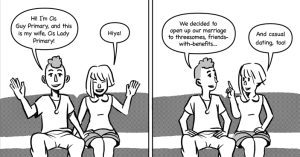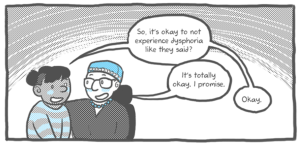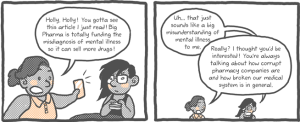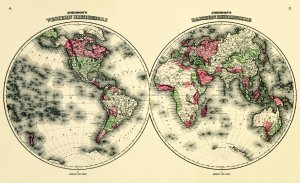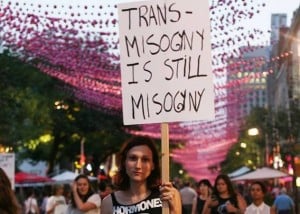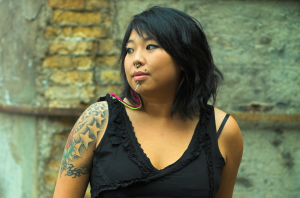
Source: GoPixPic
Originally published on Let’s Queer Things Up and cross-posted here with their permission.
Author’s Note: I wanted to address the comments that have questioned my choice to focus on trans women in particular. While I recognize non-binary, gender non-conforming, and more generally transgender people encounter a lot of street harassment — I myself am genderqueer and encounter harassment on the regular — I wanted to focus on the hypocrisy of feminists who talk about “all women,” but exclude trans women. I narrowed the scope of the article because trans women have a specific experience of misogyny that deserves focus and attention. This is not meant to erase other struggles, though, and I encourage you to give voice to your experiences without derailing the conversation. This conversation is about trans women, sexism, and misogyny, and is intended to create a safe space for trans women to share their stories.
Street harassment, and the ways in which women feel unsafe in public spaces, is finally getting some much-deserved attention and dialogue in the mainstream.
For example, a video following a woman in New York City for ten hours revealed a disturbing amount of leering, inappropriate comments, and just generally disgusting behavior.
Though the video is not without problems, I think the conversation being had is an important one.
However, there’s been something consistently missing from those critiques.
I believe this and the many other viral street harassment videos and articles I’ve seen are lacking something: namely, the understanding that street harassment is not just a cisgender lady problem.
Somehow we’ve forgotten the burden that trans women in particular carry when they walk down the street – not just from leering men, but from everyone, including law enforcement.
Overwhelmingly, trans women carry a burden of harassment and violence on the streets.
If a trans woman steps out into public, there is an 8% chance that the street harassment she is facing will turn violent – and a fairly good chance that no one will do a damn thing about it.
If she’s confronted by law enforcement, it can be expected that she will be unfairly interrogated because apparently all trans women are people who provide commercial sex, simply by virtue of walking and being a transgender woman.
In other words, walking as a trans woman is not just a dangerous act – it is apparently a criminal act, too.
It’s not a surprise that trans women feel unsafe. Street harassment is not just a threat to their emotional well being, but a serious threat to their physical safety.
Trans women, and particularly trans women of color, are murdered every year, and it often starts with words on the streets, as was the case with CeCe McDonald.
Yet these struggles are coined “transgender issues” by most, considered a special problem that trans folks need to figure out on their own.
If CeCe McDonald taught us anything, it’s that street harassment isn’t just a cisgender issue. It’s every woman’s problem – and a burden that is especially and unjustly carried by trans women of color.
And if you care about all women, and you care about ending street harassment and violence against women, we need to include trans women’s voices in this conversation — not as separate tokens with a special problem, but as equals who have something valuable to offer us.
If you simply say “all women experience street harassment” without very specifically addressing the concerns of trans women, that is not inclusion.
And if every hidden camera video follows a cisgender woman, and every woman you interview is a cisgender woman, and every article about street harassment is written by a cisgender woman, and every study only represents cisgender women, guess what.
You are not being inclusive.
If you are committed to ending street harassment that targets women, you need to invite every woman to the table – not just cisgender women, but trans women, too.
This points to a larger problem of essentially telling trans women that their concerns are not women’s issues, but rather, special transgender problems that they should have to deal with on their own.
However, trans women are women, and the same feminists I know that continually assert this are also the same feminists who have, intentionally or not, left trans women out of the conversation on street harassment.
If you believe that trans women are women (which you should, because they are), that means that their struggles with street harassment and violence are not separate issues to be ignored, and that trans women are not a special interest but rather your interest, as a woman or an ally that is fighting for women.
That’s not to say that the violence faced by transgender women should always be lumped into this broader context, but to exclude trans women from the larger conversations about street harassment is problematic.
Feminist peers, what we’re talking about here is intersectionality.
Trans women are women, and therefore, their struggles, in addition to being shaped by transphobia, are also an issue of misogyny.
Conversations about sexism that leave out trans women are doing a disservice to everyone, because transgender women have been at the forefront of calling out sexist bullshit for many a decade, and their perspectives are invaluable.
Street harassment doesn’t just stop at cisgender women – it overwhelmingly impacts the experiences of trans women as well.
So when we’re talking about street harassment, conducting an academic study, or making a video about it – we need to ensure that trans women are not left out of the picture.
Amplify the voices of transgender women and bring those women to the table.
Their experiences and their lives matter. It’s time that you step up and include them – not just when it’s convenient for you, but whenever there is something at stake for trans women as well (hint: always).
In the comments today, I’m hoping folks will include relevant articles, voices, and resources. I am by no means an expert on the experiences of trans women.
To start you off, here are a few links: Laverne Cox speaking on bullying and harassment and an interview with CeCe McDonald and Laverne Cox, discussing how “black trans bodies are under attack.”
[do_widget id=”text-101″]
Sam Dylan Finch a Contributing Writer for Everyday Feminism. He is queer writer, activist, and educator based in the San Francisco Bay Area. A passionate feminist and social justice advocate, Sam explores topics such as transgender identity, mental health and illness, radical self-love, and queer feminism. In addition to his work at Everyday Feminism, he is also the founder of Let’s Queer Things Up!, his hella queer and very awesome blog. You can learn more about him here and read his articles here. Follow him on Twitter @samdylanfinch.
Search our 3000+ articles!
Read our articles about:
Our online racial justice training
Used by hundreds of universities, non-profits, and businesses.
Click to learn more






